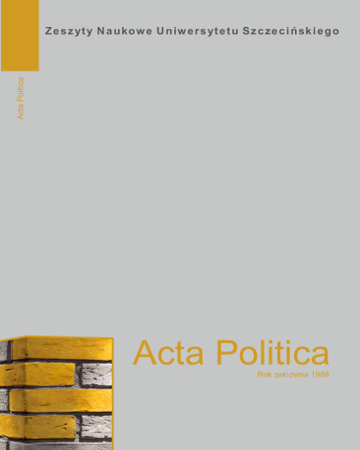Polityczna/obywatelska rola religii: jakiej narracji potrzebuje Unia Europejska?
Political/ civil role of religion: what narrative the EU needs?
Author(s): Walter RothholzSubject(s): Politics / Political Sciences
Published by: Wydawnictwo Naukowe Uniwersytetu Szczecińskiego
Keywords: religion; civil socjety; European Union
Summary/Abstract: How people arc imagining the European Union? So far, thinking and imagining was determined by economy and positivist regularities and their expression in social science. This led to a spiritual and political crises, which started in the eighties of the last century and reached its high peak in the years after 2008. In this article, it is tried to incorporate the level of religion and symbols. By this amplifikation one will meet uptill now neglected level of subjective consciousness seeking for sense in society and history. Even if secularization is undeniable within the European union, it remains true that Religion is the driving power behind social imaginations. Religion forms the centre of the European political culturc-albcit in a not very well understood manner. The political problem of legitimization and the creation of social peace between hostile Christian groups has been mastered by a certain ratio of entanglement of religion and politics since 1648. Those relationships have steadily to be outbalanced anew. In the run of those processes new civil religions arc coming into being, which for a certain time are effective but sooner or later break down, because they only partially can satisfy the existential needs of people. Civil religions in modern times since the 17th century arc necessarily travesties of the old Christian religion oriented towards the beyond. They may be called a state- cult. Therefore secularization does not mean a profanization of an ovcrmighty sacred, but modern protagonists using the old salvational symbols, convene their meaning into the opposite, f. ex.: The myth of paradise into a society free from repression, boundless welfare and so on. Eric Vocgclin called this situation of rededication respectively a transmogrification of symbols". The sphere of politics stands at the latest since the French revolution under a mysterious tension of the sacred: It is true that the church had been removed from her orientation towards the truth, but at the same time, the national states adopted the sacral consciousness bearing the institutions. By this a strong social dynamics started to create images of a new public welfare. This situation shows itself very clearly in the structures of the European Union. Here one meets the consequences of the national states' secularization. Typically enough the "Durkheimian" God, i.e. the God of the National state, the God of patriotism is seen as a threat for a sccularcd scl(understanding of the European Union
Journal: Acta Politica Polonica
- Issue Year: 2013
- Issue No: 26
- Page Range: 5-18
- Page Count: 14
- Language: Polish

